Line 5 tunnel plan gets OK from Michigan Public Service Commission
- Oops!Something went wrong.Please try again later.
MACKINAW CITY — A long debated plan to replace a segment of Line 5 that runs under the Straits of Mackinac was granted approval by the Michigan Public Service Commission on Friday, with conditions.
Built in 1953, Enbridge Energy’s Line 5 spans 645 miles from Superior, Wisconsin to Sarnia, Ontario. The line transports light crude oil and natural gas liquids. Four miles of the pipeline — consisting of two, 20-inch pipelines — crosses through the Straits of Mackinac.
Environmental advocates have long called for the pipeline to be shut down over concerns that an oil spill in the Straits would be ecologically devastating. Anchor strikes have damaged Line 5 in several past instances, forcing the line to temporarily shut down.
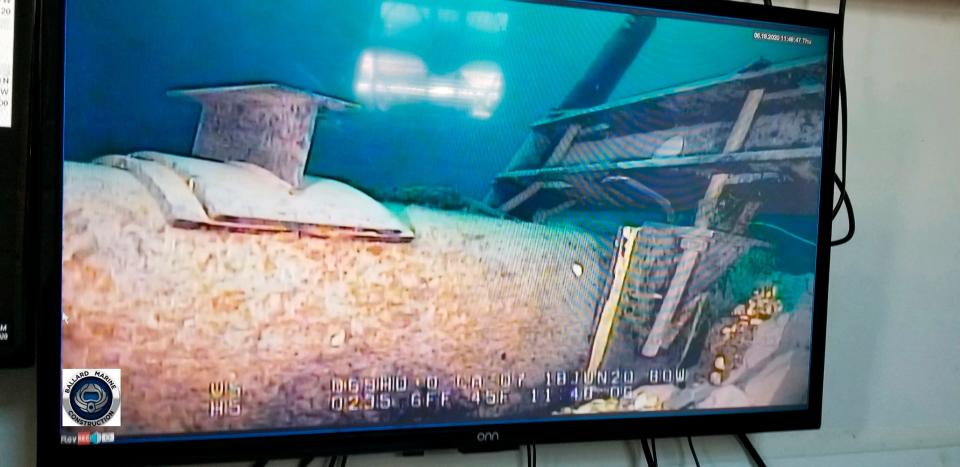
More: Plan to place Line 5 in Straits of Mackinac tunnel gets OK from Michigan panel
In an effort to address these safety concerns, Enbridge proposed an underwater tunnel to house the portion of Line 5 that runs under the Straits. Plans for a tunnel reach back to former Gov. Rick Snyder’s administration, and faced legal challenges under Gov. Gretchen Whitmer and Attorney General Dana Nessel.
According to the Detroit Free Press, Whitmer in 2020 revoked Enbridge's easement with the state to use Great Lakes bottomlands for Line 5, effective in May 2021, citing safety risks and repeated violations of the easement's requirements by Enbridge. But the company has continued operating the lines in defiance of Whitmer’s order, arguing that regulation of interstate and international pipelines is a federal matter. That case remains ongoing in U.S. District Court.
During the Michigan Public Service Commission’s meeting on Friday, the commission determined there is a public need for replacing the section of Line 5 running through the Straits because alternative means of transportation would be both riskier and more expensive.
The commission found that the replacement segment would be a “significant improvement over the existing dual pipeline configuration, virtually eliminating the risk of anchor strikes, in addition to the replacement segment being housed in a tunnel that can serve as a secondary containment vessel that would contain a leak if one developed.”
The plan was approved by two commissioners, with one abstention.
Subscribe: Check out our offers and read the local news that matters to you
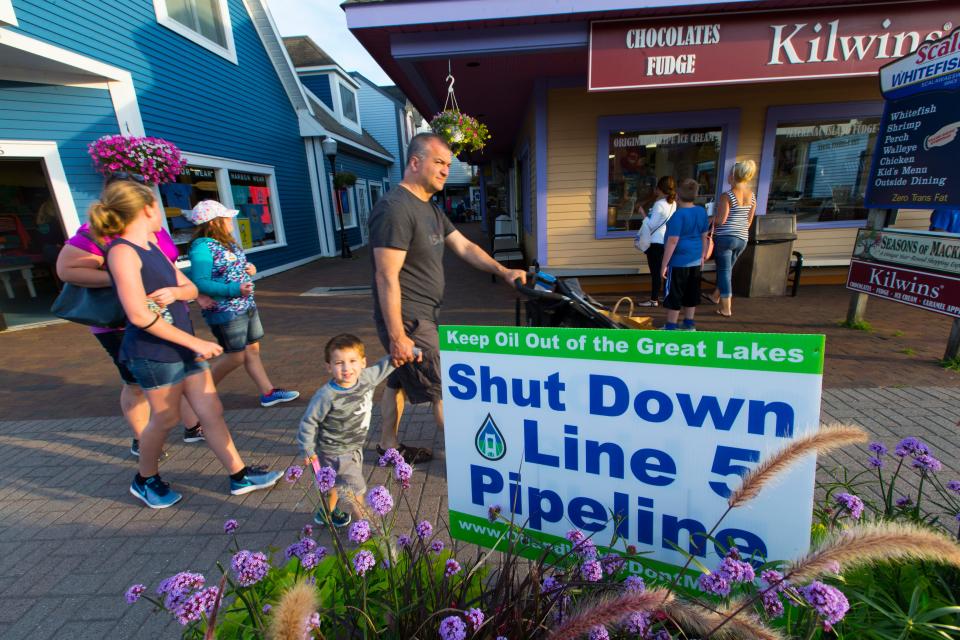
The commission’s decision drew immediate criticism from tribal governments and environmental groups. Many of the groups — including the Bay Mills Indian Community, For Love of Water, the Grand Traverse Band of Ottawa and Chippewa Indians, the Little Traverse Bad Bands of Odawa Indians, the Nottawaseppi Huron Band of Potawatomi Indians, and the Tip of the Mitt Watershed Council — were listed as intervenors in the case.
"Instead of complying with a governor's public safety order to decommission Line 5 in Michigan, individuals working at a state agency granted Enbridge a permit for a project for which they hold no property rights and no safety track record in good standing,” said Bay Mills Indian Community President Whitney Gravelle in a statement. “(Friday’s) decision is another notch in a long history of ignoring the rights of Tribal Nations. We must act now to protect the peoples of the Great Lakes from an oil spill, to lead our communities out of the fossil fuel era, and to preserve the shared lands and waters in Michigan for all of us."
The Bay Mills Indian Community is currently challenging a separate permit for the tunnel project that was granted in 2021 by the Department of Environment, Great Lakes and Energy.
In April, 51 tribal organizations from Wisconsin, Michigan and Ontario submitted a report to the United Nations Human Rights Council claiming that the Government of Canada is violating the human rights of Indigenous peoples through its continuous support for Line 5.
The Bad River Band of Lake Superior Chippewa in Wisconsin also filed a motion for an emergency shutdown and purge of Line 5, which runs through its tribal land.
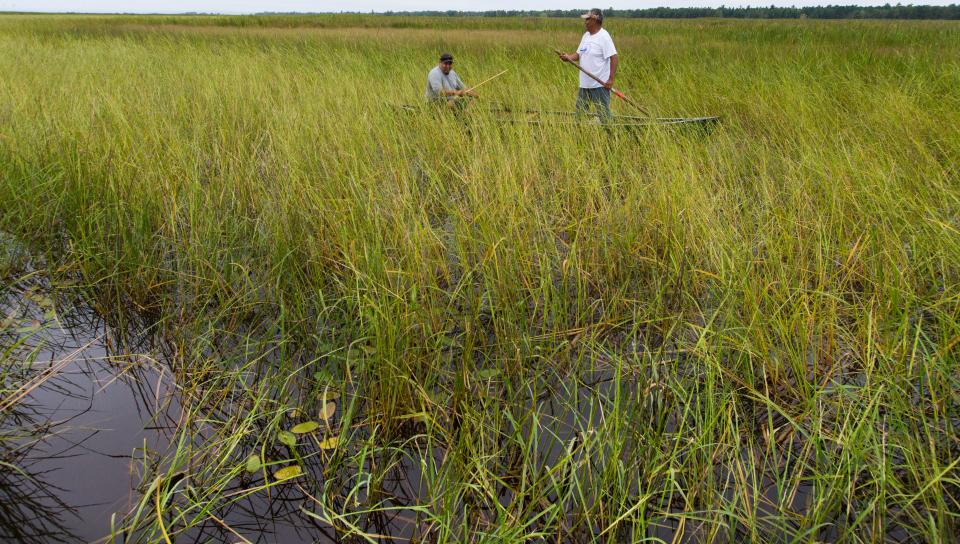
More: Michigan, Wisconsin and Canadian tribes come together to fight Line 5
More: As legal sparring continues, Army Corps pushes Line 5 permit timeline to 2025
Jennifer McKay, policy director for the Tip of the Mitt Watershed Council, said they were “extremely disappointed with the decision.”
“We were working towards the ultimate goal of no transportation of crude oil in, on or under the Great Lakes, so we’re disappointed with the decision to approve the Great Lakes tunnel,” McKay said. “Simply replacing the Straits portion of the (pipeline) ultimately fails to eliminate the risk to the Great Lakes and Michigan’s public trust waters as the inland portions of Line 5, which cross nearly 400 water bodies, remain.”
The Groundwork Center for Resilient Communities also released a statement to express their disappointment in the ruling.
“Greenlighting this tunnel simply trades one set of extreme risks for another,” said Ashley Rudzinski, climate and environment program director for Groundwork. "There is no other tunnel like this in the world — and for good reason. Given Enbridge’s terrible track record of repeated safety failures and spills, it is shocking that Michigan regulators would approve this half-baked proposal. We are trading a ticking time bomb for an actual one.”
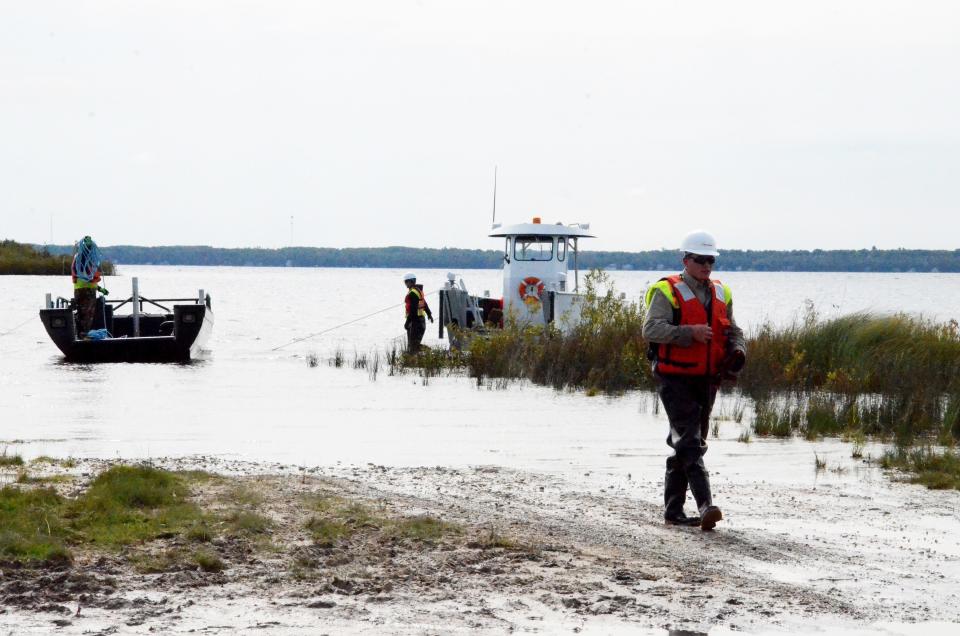
Supporters of the tunnel plan point to Enbridge’s role in providing fuel, energy and employment across the state. Enbridge pays about $65 million in annual property taxes.
A group of state representatives from Northern Michigan, including Reps. Cam Cavitt, Neil Friske, Greg Markkanen, Dave Prestin and Curt VanderWall, released a group statement to celebrate the commission’s decision.
“MPSC made the right call (Friday), but it doesn’t excuse the overzealous effort to delay and kill the Enbridge proposal,” said Cavitt (R-Cheboygan) in the statement. “The operation of Line 5 is essential. Enbridge is one the largest taxpayers in Cheboygan County. Without Line 5 tax revenue, entire school districts would be forced to close.”
Friske (R-Charlevoix) added that “This is the safest and most efficient way to do one of the things Michigan does best: harness natural resources into power and opportunity for the entire nation and beyond. The fight isn’t over just yet, but the biggest battle so far has now been won.”
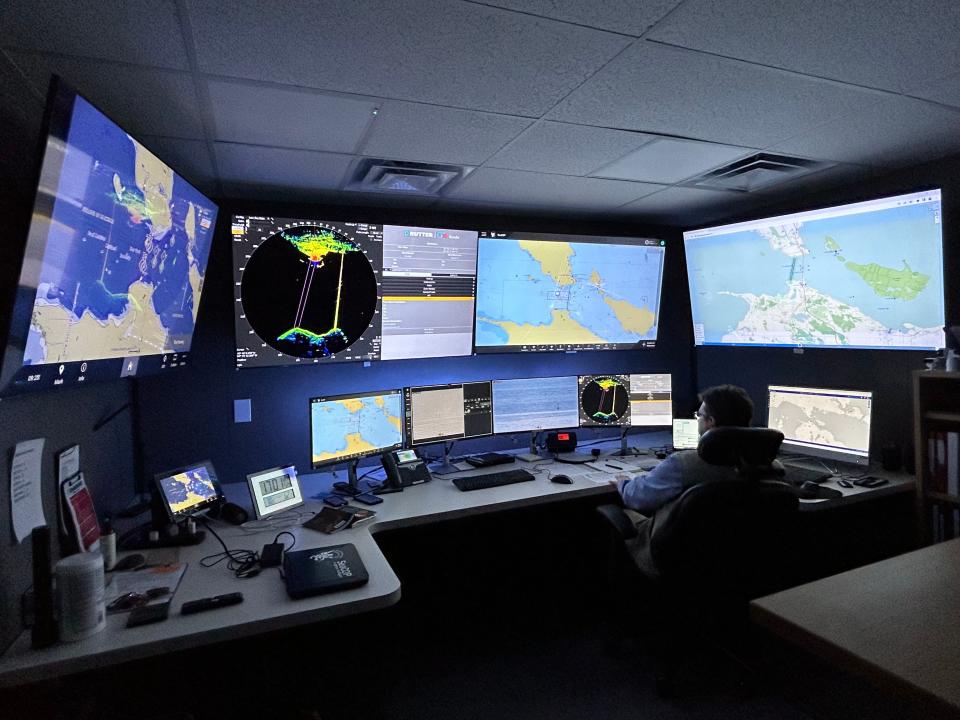
The commission’s approval does come with caveats.
According to the Free Press, the line must receive all required government approvals and no route changes can be made without returning to the commission, no other utility lines can be placed in the tunnel without receiving further commission approval, and Enbridge must produce a detailed risk management plan.
In a Friday press release, Enbridge officials called the commission’s ruling “a major step forward in making the Great Lakes Tunnel Project a reality” and said they are “ready to begin work on this project.”
“The only thing standing in the way of locating a replacement section of Line 5 into the tunnel is a decision on our permit application by the U.S. Army Corps of Engineers,” reads Enbridge’s statement. “As we advance this energy modernization infrastructure project, Enbridge remains steadfast in our plan to reduce emissions to net-zero by 2050 by investing in renewables, modernizing our networks, and transporting and delivering these energy resources safely.”
The U.S. Army Corps of Engineers has begun an environmental impact study of the proposal, and had previously pushed the permitting timeline for the tunnel project to spring 2025.
McKay said the watershed council now plans to review the decision and work with other intervenors to determine next steps.
“The fight continues,” she said. “I think it’s also important to recognize that this is not an end for Enbridge. They still have to obtain the Army Corps of Engineers permit, which is not expected until 2025. There’s also the lawsuit that the Attorney General of Michigan has and there’s also the lawsuit in Wisconsin.”
— Contact Jillian Fellows at jfellows@petoskeynews.com.
This article originally appeared on The Petoskey News-Review: Line 5 tunnel plan gets OK from Michigan Public Service Commission

